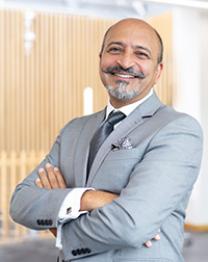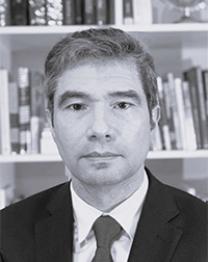
Inclusive economic diversification and energy transition
This webinar was jointly organized by UNCTAD and the School of Business and Creative Industries, University of the West of Scotland (UWS).
"Inclusive economic diversification and energy transition" is the theme of the UNCTAD Commodities and Development Report launched in October 2023.
This report highlights that most developing countries depend heavily on exporting commodities, and they are often very vulnerable to various shocks such as fluctuations in exchange rates, drop in commodity prices, pandemics, and conflicts. As a result, these so-called commodity-dependent developing countries (CDDCs) have volatile incomes and slow growth in productivity. Their limited range of commodities exported also affects public revenue and the potential for investing in sustainable development.
The main objective of this webinar was to inform participants about the key findings and messages of the UNCTAD's Commodities and Development Report 2023. This webinar was also an opportunity to receive feedback on the report and seek for guidance of the issues that could be explored in the forthcoming UCDRs.
This webinar was conducted in English (without translation) online via the Zoom platform.

Miho Shirotori is the Acting Director of the Division on International Trade and Commodities (DITC) of the United Nations Conference on Trade and Development (UNCTAD).
Miho also leads a team of experts that assess how trade agreements, trade in services, and the creative economy contribute to inclusive and sustainable economic diversification.
Her expertise includes “equitable” trade in agriculture for least developed countries, low-income countries, and net food-importing developing countries.
Miho represents UNCTAD in global conferences and various inter-agency activities, including the UN inter-agency task force that monitors the implementation of the Addis Ababa Action Plan for the Financing for Development.

Professor Kasim N Sheikh is the Dean of the School of Business and Creative Industries at the
University of the West of Scotland. He is an international and published expert in human rights
and justice, and a United Nations Expert in Law. He has advised cabinets, parliaments,
legislature, and judiciary for states in the Middle East, Central Asia and Asia having spent over 20
years supporting developing economies with collaborative and consultative partnerships.

Clovis Freire Junior is Head a.i. of Commodities Branch, and Chief of Commodity Research and Analysis Section, of the Division on International Trade and Commodities of UNCTAD in Geneva. He is an Economist specialized in economic diversification and strategies for building productive capacities in developing countries. His work supports the structural transformation and sustainable development of commodity-dependent developing countries.
He has over 20 years of work experience in the United Nations in programmes related to commodity dependence, least developed countries, technology and innovation for development, and disaster risk reduction. He holds a degree in Computer Engineering from the Technological Institute of Aeronautics (ITA), Brazil, a Master’s degree in Computer Sciences from the University de Brasília (UnB), an MBA in Strategic Management of Information Systems from the Fundação Getúlio Vargas (FGV), Brazil, and a PhD in Economics from the Maastricht University, in Maastricht, the Netherlands.
Taro Boel is currently an Associate Economic Affairs Officer working in the Commodities Branch, Division on International Trade and Commodities of UNCTAD.
He has been involved in a project designed to foster local content in the oil and mining sector through developing linkages between the Transnational companies and the local private sector especially in Angola, Chad, Equatorial Guinea, and the Republic of Congo. He has also conducted research on the access of smallholder farmers to the international markets (UNCTAD Commodities and Development Report 2015) as well as the contribution of diamonds revenues to economic development in Botswana and Sierra Leone (UNCTAD Commodities and Development Report 2017).
Previously, he worked for the United Nations Economic Commission for Africa (UNECA) based in Addis Ababa (2008-2012). During this period, he contributed to many substantive reports, including the Economic Report on Africa 2009 “Developing African Agriculture Through Regional Value Chains”, the “Sustainable Development Report on Africa” and the Seventh African Development Forum on Climate Change. He penned and presented a paper titled “risk management strategies and labour productivity in rural Africa” at the Center for the Study of African Economies (CSAE) located at Oxford University in the United Kingdom.
He graduated in development economics from the “Université d’Auvergne” in France and successfully passed the National Competitive Examination (NCE) of the United Nations while he was an external collaborator with the International Labour Organization (ILO) in Geneva.
Kingsley Omeihe is a Senior Lecturer in Marketing at the School of Business and Creative Industries, where he serves as an Associate Lead for Research Impact. He is the Editor-in-Chief of the Journal of Trust Studies. Kingsley holds an affiliated position as Chair of African Studies at the British Academy of Management. He is the author of Sage's Qualitative Research Methods for Business Students.
Charlotte Eba is a Lecturer in Economics at the University of the West of Scotland. She is also an active member of the Centre for African Research on Enterprise and Economic Development (CAREED). Eba's primary research focus centers on International Trade, with a specific interest in market institutions and their impact. Her dedication has yielded notable accomplishments, including her co-authorship of a book chapter that delves into the intricate relationship between market institutions and their role in trade and economic development in Africa.
Kristian Schach Moller is the CEO of the Agricultural Commodity Exchange for Africa (ACE), based in Lilongwe Malawi. Kristian is from Denmark, but has lived in Malawi since 2005 and has been with ACE since the first trade operations started in 2006. Kristian has since been instrumental in setting up the ACE trading system, which includes the warehouse receipt system. Kristian is the Chairman of the Working Group for Commodity Exchanges under the Ministry of Trade, Industry and Tourism, where the Warehouse Receipt Act and the regulatory framework for commodity exchanges and warehouse receipts system was developed. Kristian holds a Master of Law and a Master of International Business and is a certified Arbitrator.





